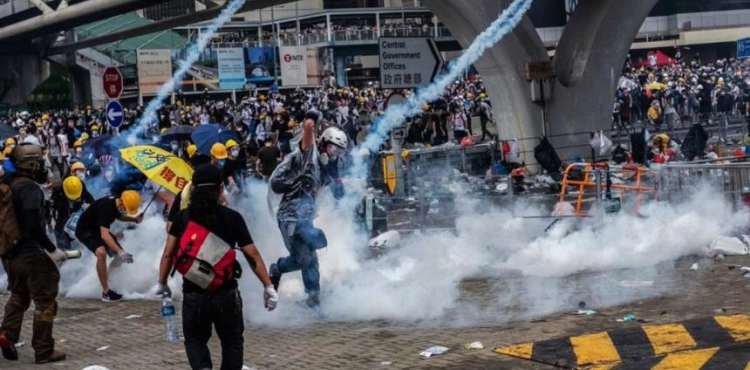The United States imposed sanctions on 14 Chinese officials on Monday, threatening Beijing to pay a heavy price for its persistence in the crackdown in Hong Kong.
The administration of US President Donald Trump announced that the sanctions imposed on 14 vice-chairs of the Standing Committee of the National People´s Congress include freezing any assets they may possess on American soil and preventing them from traveling to the United States.
This committee was the spearhead of imposing the National Security Act in Hong Kong.
US Secretary of State Mike Pompeo said in a statement that the recent sanctions "confirm that the United States will continue to work with allies and partners to hold Beijing accountable for undermining the promised self-rule in Hong Kong."
"The United States again urges China to fulfill its international obligations and listen to the calls of several countries that condemned their practices," the statement added.
And the United States previously imposed sanctions on the pro-China Hong Kong Chief Executive Carrie Lam.
After seeking to reduce the importance of the sanctions, Lam recently admitted in an interview that she relies on "heaps of liquidity" as she is unable to open a bank account due to pressure from the influential US Treasury Department in dollar-denominated financial dealings.
On Monday, the European Union condemned the decline in freedoms in Hong Kong since the entry into force of the National Security Act in the British colony and did not rule out the imposition of new sanctions.
"We are aware that the situation in Hong Kong continues to deteriorate. Pluralism and freedom of expression are threatened. We condemn this," the Spanish Federation´s Foreign Minister, Josep Borrell, declared at the conclusion of a meeting of EU foreign ministers.
"No new measure has been taken today, but that does not mean that we are not considering additional measures in the future," he added.
The Chinese parliament, loyal to the ruling Communist Party, approved the imposition of the National Security Law in Hong Kong in June despite international warnings that this law violates a pledge to allow the establishment of a special political system in Hong Kong that the country had cut off from and under which the former British colony was taken over in 1997.
And through the National Security Act, China was able to a large extent to suppress the protests that took place in Hong Kong last year.
And on Monday, Hong Kong police used the National Security Act to arrest three people who last month chanted on campus.
And in November, pro-democracy lawmakers submitted a collective resignation from the city’s legislature after the revocation of four of their colleagues´ offices.
Pompeo said China was practicing "relentless aggression" in the former British colony "that has practically undermined the ability of the people of Hong Kong to elect their representatives."












